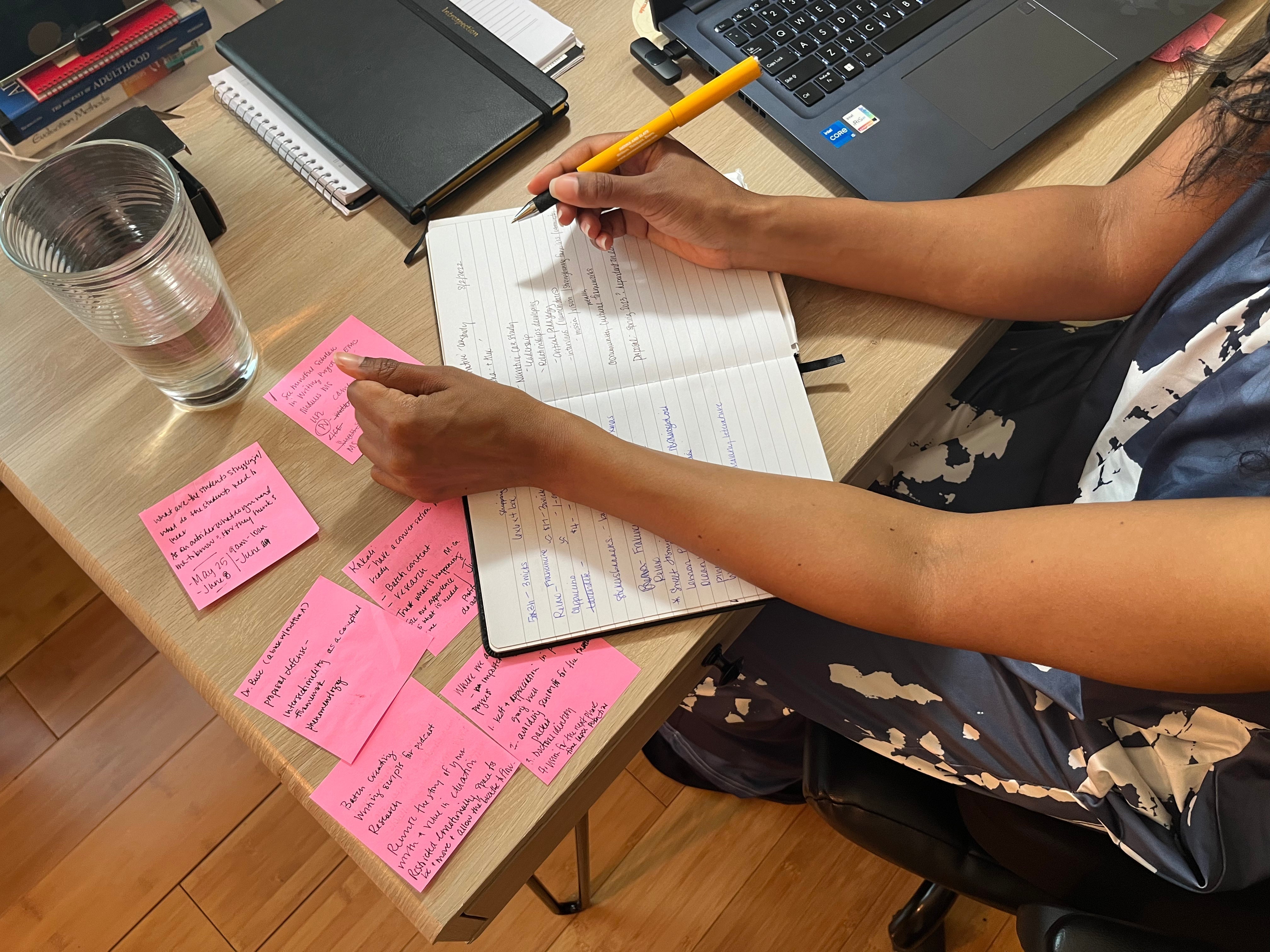
Your Body Knows Before Your Brain Does: Somatic Signs You Need to Leave/Change/Rest
Let's talk about something we don't discuss enough in high-achieving circles: your body is constantly giving you intel about your life, and you're probably ignoring it.
Right now, as you're reading this, do a quick body scan. Where are you holding tension? Is your jaw clenched? Shoulders hunched up around your ears? Stomach in knots? That's not just stress—that's information.
Your rational mind is excellent at convincing you to stay in situations that are slowly killing you. It'll create elaborate justifications for why you should stick it out: "This opportunity looks good on my CV," "I'm almost done with my program," "Everyone else seems fine with this workload."
Meanwhile, your body is sending up flares like a sinking ship.
I've watched brilliant people develop chronic migraines, digestive issues, and insomnia while their brains insisted everything was "manageable." Your body doesn't give a shit about your career trajectory—it cares about survival. And when you're in a toxic situation, it will let you know.
Red Flags You Can't Ignore
The Sunday Scaries on Steroids: You know that pit-in-your-stomach feeling before a difficult week? If you're waking up with dread more often than not, your nervous system is telling you something's wrong. This isn't normal performance anxiety—this is your body saying, "we're not safe here."
Chronic Exhaustion That Sleep Doesn't Fix: When you're sleeping 8+ hours but still feel like you got hit by a truck, that's not laziness. That's your system running on fumes, trying to cope with chronic stress. Your body is literally working overtime to keep you functional in an unsustainable situation.
The Phantom Illness: Recurring headaches, mysterious stomach issues, that cold you can't shake—sometimes these are your body's way of forcing you to rest when you won't do it voluntarily. Pay attention to what triggers these flare-ups. Thesis defense prep? Department meetings? Specific people?
Emotional Numbness: Can't cry anymore? Feeling disconnected from things you used to care about? This isn't depression (though it might look like it)—it's often your nervous system shutting down to protect you from overwhelming stress. Your body is literally numbing you out because the situation is too much to feel fully.
The Anxiety Spike: Does your heart race when you see certain emails in your inbox? Do you feel nauseous before specific meetings? Your autonomic nervous system is pattern-matching and warning you about people or situations that consistently drain or harm you.
Your Body's Intelligence System
Here's what blew my mind when I started paying attention: my body knew my supervisor was toxic six months before my brain caught up. I'd get a tight chest and shallow breathing every time I walked into their office. I dismissed it as "normal nervousness," but my nervous system was clocking the manipulation and emotional abuse way before my rational mind could name it.
Your body processes information faster than your conscious mind. It's picking up on micro-expressions, energy shifts, and environmental cues that your thinking brain hasn't sorted through yet. When someone says one thing but their energy feels off, your body notices the mismatch immediately. Listen to it.
The Daily Body Check-In Practice
Start treating your body like a trusted advisor instead of an inconvenience or something that will always be there even through the abuse.
Here's a simple practice:
Morning Body Scan: Before you check your phone or dive into work, spend 2 minutes scanning from your head to your toes. What's tight? What feels open? What sensations are you noticing? Don't try to fix anything—just gather intel.
Decision-Making Body Compass: Before saying yes to opportunities, commitments, or requests, pause and notice your body's immediate response. Does your chest open up or contract? Do you feel expansive or like you want to shrink? Your body often knows the right answer before your brain starts weighing pros and cons.
End-of-Day Debrief: What made your shoulders relax today? What made your jaw clench? Your body is keeping score of what supports you and what depletes you—start paying attention to the patterns.
When Your Body Says "Enough"
Sometimes your body will make the decision for you. Chronic illness, panic attacks, or complete burnout can be your system's way of enforcing boundaries you wouldn't set voluntarily.
I know people who developed autoimmune conditions in toxic programs, whose bodies literally started attacking themselves because the external environment was so hostile. I know others whose anxiety became so severe they couldn't function until they finally left that soul-crushing postion.
Your body isn't betraying you—it's trying to save you. That is literally it’s job.
The Radical Act of Listening
In a culture that glorifies pushing through pain and ignoring physical needs, paying attention to your body is revolutionary. It's saying: my well-being matters more than external expectations. My nervous system's wisdom is valid data for my life decisions.
This isn't about becoming fragile or using every minor ache as an excuse to avoid challenges. It's about recognizing that your body is a sophisticated early warning system that's been fine-tuned by millions of years of evolution to keep you alive and thriving.
When you start listening to these signals instead of overriding them, something magical happens: you begin making decisions from a place of deep knowing rather than external pressure. You start honoring your actual capacity instead of some idealized version of productivity. You begin treating yourself like someone worth protecting.
Your Body, Your Guide
Your nervous system has been trying to guide you toward what supports your well-being and away from what harms you. The question is: are you ready to listen?
Start small. Notice what makes your breathing deepen and what makes it shallow. Pay attention to which people and places make you feel more like yourself and which ones make you want to disappear.
Your body knows. It's been knowing. The only question is whether you're ready to trust that wisdom and act on it.
Ready to start listening to your body's wisdom?


Leave a Comment